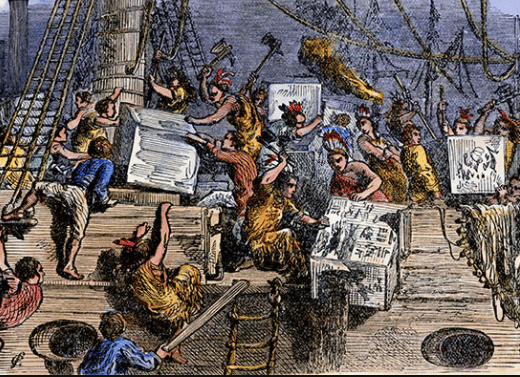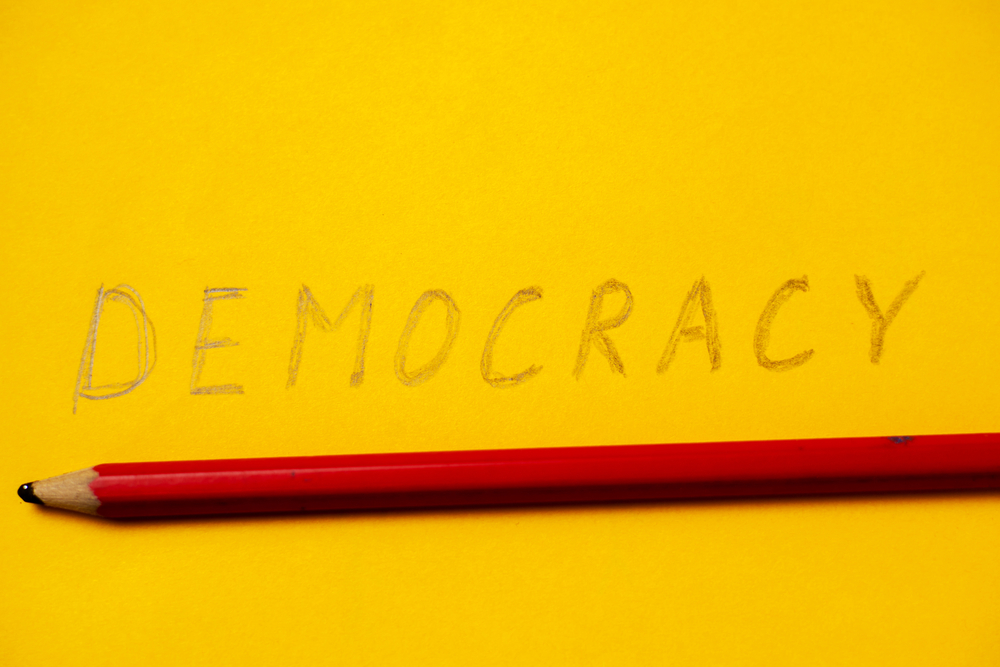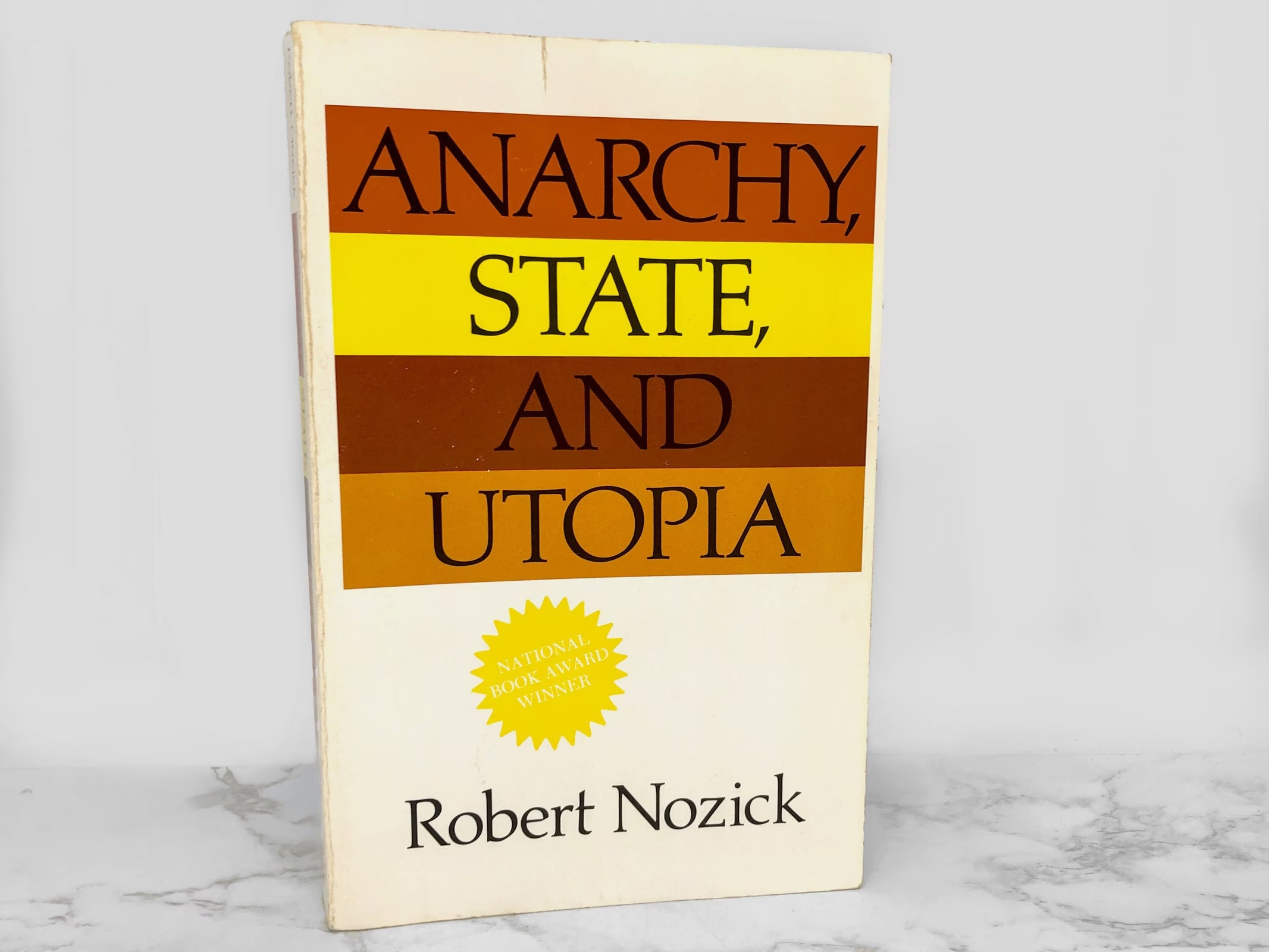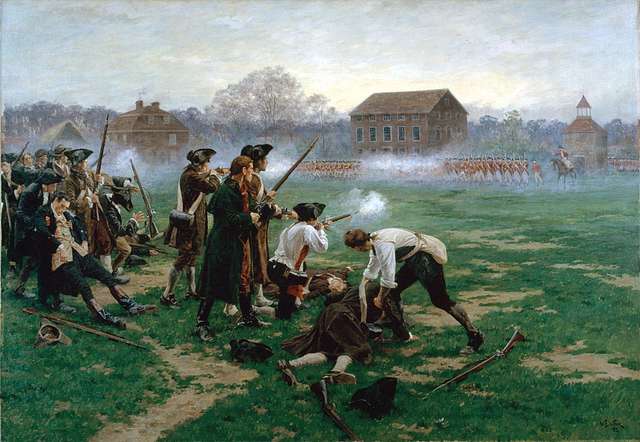Today in history, on Dec. 16, 1773, a group of Bostonians dressed as Mohawk Indians boarded three British ships and dumped several tons of tea into Boston Harbor. The event became known as the “Boston Tea Party,” or the “Destruction of the Tea.”
After congregating at the Old South Meeting House, a group of patriots donned the attire of Native Mohawk Indians – to show that their action was reflective of an American cause rather than a British one. They rushed down to the harbor, where they boarded the tea ship Dartmouth and unloaded all 342 chests of tea into the water. Although they engaged in a particularly rebellious act, the Sons of Liberty made sure to avoid the destruction of private property. Nothing was stolen or looted from the ship, and the decks were even swept clean.
Those who participated in the tea’s destruction were sworn to secrecy, and those who participated are still subject to historical debate. Although the complicity of Samuel Adams is still disputed, he unquestionably embarked upon an immediate campaign to publicize the event. Adams and the Massachusetts Whigs declared that taxes could not levied without the endorsement of the people’s representatives – a notion that stretched all the way back to 1215 and the Magna Carta.
Contrary to popular belief, the destruction of the tea was not specifically a tax protest – the patriots did object to taxes levied without representation, but the 1773 Tea Act had actually lowered the taxes on tea. Instead, the colonists disavowed mercantile practices of the British government, specifically the tea monopoly that was granted to the East India Tea Company through the law. Additionally, they renounced the idea that Parliamentary law was supreme over all of the British Empire and could override the will of the colonial assemblies.
Upon learning of the event, John Adams wrote: “This Destruction of the Tea is so bold, so daring, so firm, so intrepid, and so inflexible, and it must have so important Consequence sand so lasting, that I cannot but consider it as an Ecpocha in History.”
Although it was the most famous event called a “Tea Party,” other states resisted the implementation of the act as well. In South Carolina, patriots dumped tea into the Cooper River. In Annapolis, a ship carrying loads of tea was put to the torch. In New York and Philadelphia, the ships bringing the tea were rejected and turned back to England.
In Edenton, North Carolina, Penelope Barker organized a group of patriot women and signed a document of rebuke against the act and pledged to boycott British goods. They agreed to obstruct the policy “until such time that all acts which tend to enslave our Native country shall be repealed.” Effectively, all states meddled with the enforcement of the law in the same ways they had resisted the Stamp Act, effectively nullifying it.
The British responded to the Boston Tea Party harshly. Parliament answered by passing the Coercive Acts – deemed in the colonies as the Intolerable Acts. The Massachusetts Government Act altered the colonial government’s legislature such that one house would be chosen only by the crown only. The Boston Port Act closed Boston’s port to all foreign trade, crippling the city’s maritime economy. The Administration of Justice Act allowed the Royal governor to order trials against royal officials to be moved to Great Britain or elsewhere within the British Empire. The Quartering Act provided for involuntary housing for British military forces on the private property of the colonists.
Taken as a whole, the Intolerable Acts sparked detestation and resistance, polarizing many who had never before been predisposed to the patriot cause. The laws were viewed as a malignant attack upon the fundamental nature of the British constitutional system and as an affront to individual rights. Undoubtedly, they would provide a catalyst that would eventually set the American colonies on a path of war and independence.
Reprinted from the Tenth Amendment Center.












